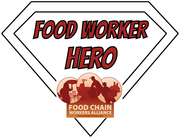We’re All Precarious Now
April 14th, 2015By Charlie Post

Neoliberalism isn’t a new concept any more. Using it, along with “deindustrialization,” to describe changes in the core economies since the 1970s has become a kind of truism. But more recently, activists have started to consider what the implications of this regime of capital have been on class structure: is something fundamentally new and different happening? Does the condition of insecurity and fragmentation of labor change radical perspectives on the labor movement, invalidating strategies for trade unionism and reform?
What some have started to call “the precariat” is a concept that bundles together these feelings and theories, and is a term that has gained currency with many on the Left.
Reclaiming Wages a Tough Road for Temp Workers
February 1st, 2015By Maria Inez Zamudio

Eidy Gaspar was surprised when her manager said she wouldn’t be paid overtime anymore. Gaspar, a warehouse worker in suburban Chicago, didn’t object because she feared being blacklisted by the temporary agency that hired her: Staffing Network, one of the largest hiring agencies in Illinois.
The mother of three worked full-time in the warehouse for six years packing books to be shipped to retailers like Target and Walmart. But when she wasn’t paid for her regular 40-hour work week, she confronted her manager. He shifted the burden of proof to her, according to a class action lawsuit she filed in August 2013 against the warehouse and Staffing Network.
“It was absurd. How can they ask me to show proof that I worked those hours?” Gaspar, 37, said in Spanish. “I punched in and out when they told me. They kept the records for those hours.”
Read more at the Chicago Reporter
Our Everyday Food Worker Heroes
November 28th, 2014By Joann Lo and Jose Oliva
These days, super heroes are all the rage, it seems. Most have supernatural powers to do good in the world. But we have people in our food system who don’t need super powers to do good in the world – they’re our everyday food worker heroes. And so for our 3rd annual International Food Workers Week, November 23-29, 2014, we’re celebrating them with a series of videos called Food Worker Heroesfeaturing one worker per sector of the food chain and a new Food Worker Heroes Tumblr blog!

…..And last, but not least, is Bakari, a warehouse worker outside of Chicago and a member of the Warehouse Workers for Justice (WWJ). “In all my experiences working in warehouses and the food industry, I suffered some discrimination. We need health benefits. We need to pay bills. It’s hard with what the companies pay you.” Bakari says he’s glad that there are organizations like WWJ and the Food Chain Workers Alliance. “We are all one people. We’re just striving for fair working conditions.”
More Protections for Temp Workers Needed
October 17th, 2014(WWJ is a founding member of the National Staffing Workers Alliance)
The U.S. economy currently has a record number of “temporary help jobs,” but many of them fall short in terms of safety and pay for workers, according to a new report on the growth of the staffing industry by the National Employment Law Project (NELP) and the National Staffing Workers Alliance (NSWA).
“The shift towards temp work is creating an economy in which working people who move and produce products for some of our nation’s largest and most profitable corporations are treated like any other input, to be acquired at the cheapest cost,” said the report’s co-author Rebecca Smith, NELP’s deputy director. “Staffing agencies not only fail to provide livable wages, benefits or job security for their workers, but their influence in an industry can lower standards for all workers in that industry.”
Read more at Progress Illinois
WWJ’s Leah Fried on WBEZ
May 11th, 2014From 91.5 WBEZ:
A Boston University economist is taking over as the nation’s Wage and Hour administrator. David Weil will enforce laws like the minimum wage and the 40-hour week. WBEZ listeners heard from Weil last month in our series about franchising. The franchising business model, he said, deserves part of the blame for low wages in fast food and other industries. We look at how this idea could play out in Weil’s new job at the Department of Labor. We’re joined by Leah Fried who is with the Warehouse Workers for Justice. She joins us to talk about warehouse workers and the wage issues they face.
